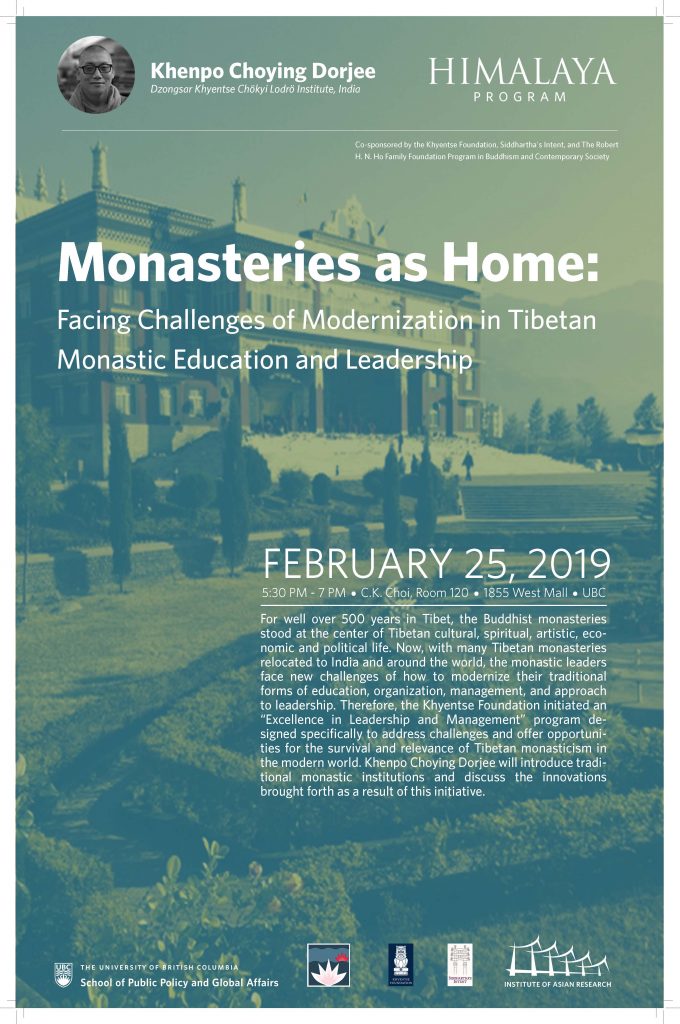This talk is co-sponsored with the Khyentse Foundation, Siddhartha’s Intent, and the Robert H.N. Ho Family Foundation Program in Buddhism and Contemporary Society.
Abstract
For well over 500 years in Tibet, the Buddhist monasteries stood at the center of Tibetan cultural, spiritual, artistic, economic and political life. Now, with many Tibetan monasteries relocated to India and around the world, the monastic leaders face new challenges of how to modernize their traditional forms of education, organization, management, and approach to leadership. The need to adapt and change is urgent for these monasteries. As Charles Darwin noted, the species that survive are not the strongest or the most intelligent; they are the ones that can best adapt to change. With the survival and relevance of Tibetan monasticism in the modern world at stake, and with a whole world of possibilities in front of them, the Khyentse Foundation initiated an “Excellence in Leadership and Management” program designed specifically to address these challenges and opportunities. In this talk, Khenpo Choying Dorjee, one of the sponsors of the leadership programs in his monastery, will introduce traditional monastic institutions and discuss the innovations brought forth as a result of this Khyentse Foundation initiative.

About the Speaker
Khenpo Choying Dorjee is a distinguished Tibetan Buddhist scholar and teacher, in particular, specialized in Tibetan Buddhist philosophy (Madhyamaka). He received his degree as Khenpo, roughly equivalent to a Western Ph.D. in Buddhist Studies, in 2004. Since then, he has held several leadership positions at Dzongsar Khyentse Chokyi Lodro Institute, which is Dzongsar Khyentse Rinpoche’s monastic university in India. He served as Abbot for several years and initiated a number of educational innovations. He was a visiting scholar at UC Berkeley in 2011 and serves on the Khyentse Foundation India Program Committee.